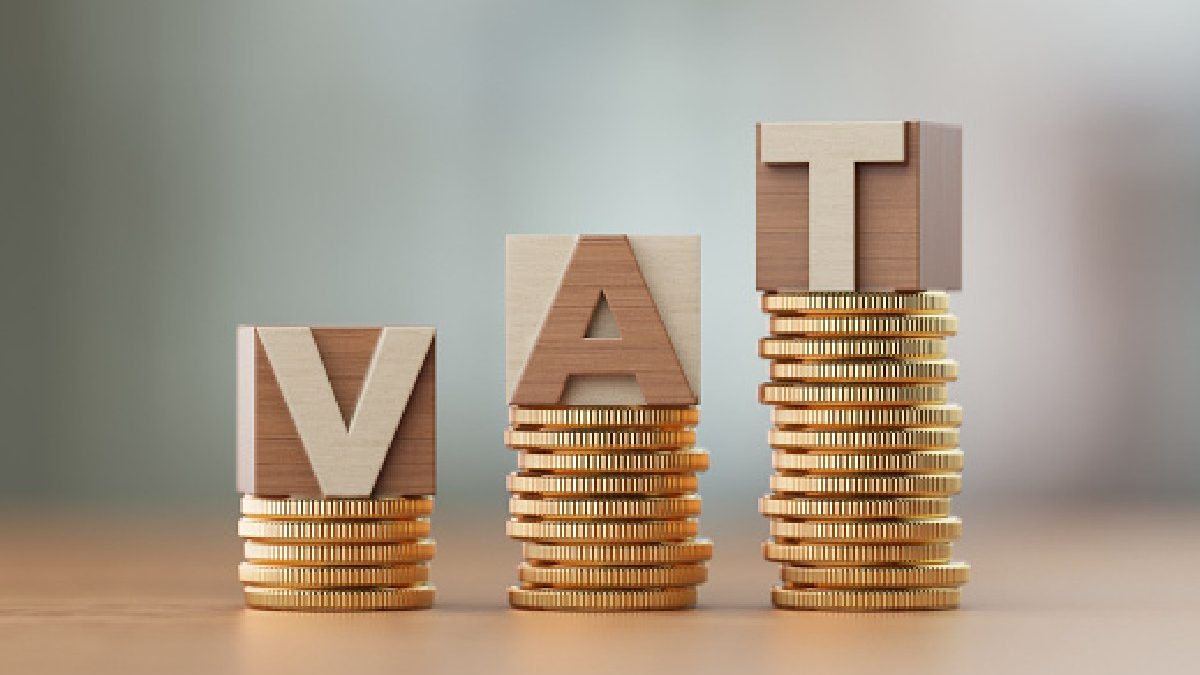VAT(Value Added Tax): Applicable to most ongoing economic transactions, value added tax, generally simplified to VAT, has the particularity of being collected by companies before being paid to the State. Applicable rates, declarations, exemptions, teletransmissions: discover the complete definition of this indirect tax, the primary revenue of the State.
Definition of VAT. The VAT brought more than 216 billion euros in 2019 to the French State, almost half of its gross tax revenue! This tax, which has existed since 1954, applies today in around thirty countries, mainly in European, and proposes taxing each stage of the production of a good or service on the added value alone to avoid cumulative taxation.
Table of Contents
VAT Definition: What is VAT(Value Added Tax)?
Value-added tax is an indirect consumption tax. It is paid by the buyer when he acquires a product or service in the European Union and corresponds to a percentage of the selling price.
The seller of the product or service collects this amount and then transfers it to the State after declaration on the tax site, unlike a direct tax (such as income tax ) paid directly by the taxpayer in the State.
It represents the primary source of revenue for public finances: for this reason, the State is actively involved in the fight against VAT fraud. And was able to generate (or save) 2020 an additional 7.8 billion euros.
How to Calculate VAT(Value Added Tax)?
To calculate the VAT, it is necessary to add a percentage to the sales price, excluding tax. This rate differs given to the nature of the product or service:
The standard rate of 20%, which concerns the majority of products and services ;
The intermediate rate of 10% applies, for example, to catering, the sale of prepared food products, transport, unprocessed agricultural products, firewood, waste treatment, etc.;
The reduced rate of 5.5% affects products considered to be necessities (food products, soft drinks, school canteen, and energy);
The special rate of 2.1% concerns specific products such as the press, medicines reimbursed by Social Security, particular shows, the television license fee, etc.
Also Read: 4 Key Points to Gain Faster International SEO Market Share
Are There Products or Services Exempt from VAT(Value Added Tax)?
Certain products or services are exempt from VAT. It’s the case :
services provided by medical and paramedical professionals (care, medical transport, delivery of organs or blood, etc.);
operations carried out by public utility organizations (which provide services to their members of a social, educational, cultural, or sporting nature, charitable or support events, which pursue philosophical, religious, political, patriotic, civic, or unions.);
particular property rentals (furnished housing for residential use, land, and buildings for agricultural use, undeveloped land, basic premises, etc.).
How to Declare VAT?
The repayment of VAT by the seller of the products and services must be the subject of a declaration, depending on the tax system. This declaration indicates the sums collected after deducting the VAT the company has paid when purchasing products or the raw materials necessary for producing its goods and services.
Companies that Fall under the Simplified Tax Regime (RSI)
That is to say, companies whose turnover is between €85,800 and €818,000 for accommodation sales and services; between €34,400 and €247,000 for service provision activities.
They must upload a CA12 declaration on the 2nd working day following May 1st, which includes all the taxable transactions of the past year.
Companies that Fall under the Regular Natural Regime (RN)
That is to say, companies whose turnover, expressed excluding tax, exceeds €818,000 for accommodation sales and services and €247,000 for service activities.
They must upload a CA3 declaration each month, on which the VAT payable during the previous month is calculated.
Note: if the VAT is less than €4,000 annually, the declaration can make quarterly.
Finally,
- Professionals in the resale purchase, sale to consume on the spot, and supply of housing¹, whose turnover does not exceed €85,800²;
- Service providers and furnished rental companies whose turnover does not exceed €34,400³;
are not subject to VAT (we speak of a franchise based on VAT). They do not apply VAT to their customers, but neither can they deduct it from their purchases or fixed assets and do not have to file a declaration unless they voluntarily opt for one of the previous regimes.
Note: some accounting solutions allow you to make and send the declaration directly via their application by configuring certain information beforehand.
Who Pays the Vat to the State? How to Pay it?
Companies that Come under the Simplified Tax Regime (RSI)
They must pay two installments (in July and December) for the current year and will settle the difference at the time of the annual declaration.
Note: there is no down payment if the previous year the VAT due was less than €1,000.
Companies that Come under the Regular Natural Regime (RN)
They pay VAT each month following the declaration.
VAT or installment payments must dematerialize for all companies via their Professional space (EFI mode) or an EDI partner. They can only make it if a declaration makes beforehand and a money order sends to the bank before the first payment.
Also Read: What the Heck is SEO Positioning?

